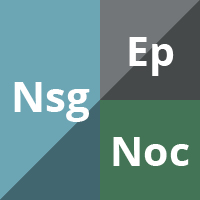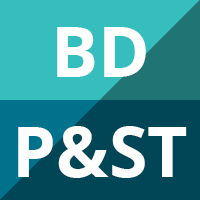
Oxcarbazepine versus phenytoin monotherapy for epilepsy
Abstract Background This is an updated version of the original Cochrane review published in The Cochrane Library 2006, Issue 2. Worldwide, phenytoin is a commonly used antiepileptic drug. For the newer drugs such as oxcarbazepine, it is important to know how they compare with standard treatments. Objectives To review the best evidence comparing oxcarbazepine and […]

Calcium antagonists as an add-on therapy for drug-resistant epilepsy
Abstract Background This is an updated version of the original Cochrane review published in The Cochrane Library 2001, Issue 4. Nearly a third of people with epilepsy do not have their seizures controlled with current treatments. Continuous attempts have been made to find new antiepileptic drugs based on increasing knowledge of the cellular and molecular […]

Phenobarbitone versus phenytoin monotherapy for partial onset seizures and generalised onset tonic-clonic seizures
Abstract Background This is an updated version of the original Cochrane review published in The Cochrane Library 2001, Issue 4. Worldwide, particularly in the developing world, phenytoin and phenobarbitone are commonly used antiepileptic drugs, primarily because they are inexpensive. The aim of this review is to summarise data from existing trials comparing phenytoin and phenobarbitone. […]

Pregabalin monotherapy for epilepsy
Abstract Background Many people with epilepsy suffer from poorly controlled seizures, despite current antiepileptic treatments. Due to high rates of treatment resistance, there is interest in new pharmacological treatment options such as pregabalin. However, it remains unclear whether existing evidence of pregabalin is rigorous enough to support its monotherapy. Objectives To determine the efficacy and […]

Carnitine supplementation for inborn errors of metabolism
Abstract Background Inborn errors of metabolism are genetic conditions which can lead to abnormalities in the synthesis and metabolism of proteins, carbohydrates, or fats. It has been proposed that in some instances carnitine supplementation should be provided to infants with a suspected metabolic disease as an interim measure, particularly whilst awaiting test results. Carnitine supplementation […]

Drugs and pacemakers for vasovagal, carotid sinus and situational syncope
Abstract Background Neurally mediated reflex syncope is the most common cause of transient loss of consciousness. In patients not responding to non-pharmacological treatment, pharmacological or pacemaker treatment might be considered. Objectives To examine the effects of pharmacological therapy and pacemaker implantation in patients with vasovagal syncope, carotid sinus syncope and situational syncope. Search methods We […]

Antiepileptic drugs for treating seizures in adults with brain tumours
Abstract Background Seizures are a common symptom of brain tumours. The mainstay of treatment for seizures is medical therapy with antiepileptic drugs. Objectives To evaluate the relative effectiveness and tolerability of antiepileptic drugs commonly used to treat seizures in adults with brain tumours. Search methods We searched CENTRAL (Issue 2 of 4, The Cochrane Library 2011), MEDLINE […]

Oxcarbazepine versus carbamazepine monotherapy for partial onset seizures
Abstract Background Partial onset seizures are often treated with the standard antiepileptic drug carbamazepine. Oxcarbazepine is a newer antiepileptic drug related to carbamazepine that is claimed to be better tolerated. Objectives To compare efficacy and tolerability of carbamazepine and oxcarbazepine monotherapy for partial onset seizures. Search methods We searched the Cochrane Epilepsy Group Specialised Register […]

Antidepressants for non-specific low back pain
Abstract Background Antidepressants are commonly used in the management of low-back pain. However, their use is controversial. Objectives The aim of this review was to determine whether antidepressants are more effective than placebo for the treatment of non-specific low-back pain. Search methods Randomised controlled trials were identified from MEDLINE, EMBASE and PsycINFO (to November 2008), […]

Antiepileptic drugs for preventing seizures in people with brain tumors
Abstract Background Seizures can present at any time before or after diagnosis of a brain tumor. The risk of seizures varies by tumor type and its location in the brain. For a long time we believed that preventing seizures with antiepileptic drugs (seizure prophylaxis) was effective and necessary, but the supporting evidence was little and […]

